Intelligences of Nature: General Books
Further resources, if available, can be found in our full bibliography.
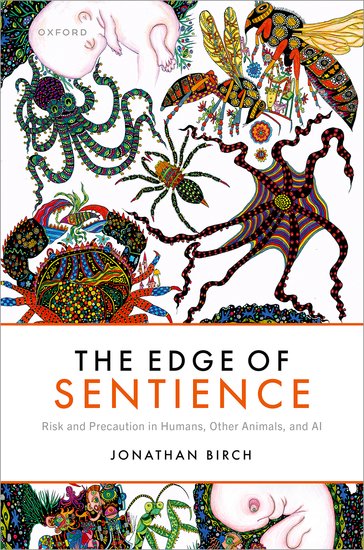
Edge of Sentience: Risk and Precaution in Humans, Other Animals, and AI
Jonathan Birch
Oxford University Press
2024
The Edge of Sentience presents a comprehensive precautionary framework designed to help humans reach ethically sound, evidence-based decisions despite their uncertainty. The book is packed with specific, detailed proposals intended to generate discussion and debate. At no point, however, does it offer any magic tricks to make uncertainty go away. Uncertainty remains with readers for the long term. They must manage their uncertainty by taking precautions that are proportionate to the risks.
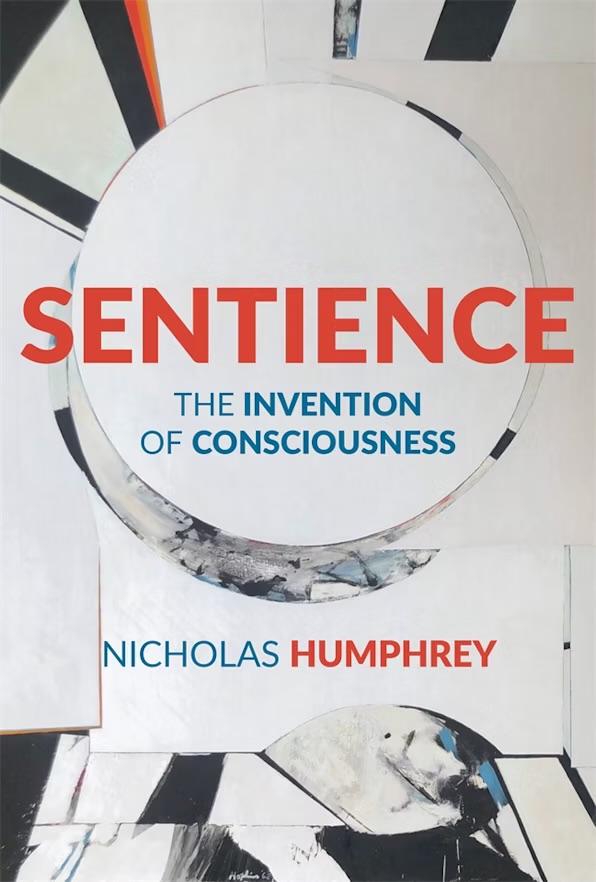
This book is a quest to uncover the evolutionary history of consciousness from a leading theoretical psychologist. Conscious sensations ground one’s sense of self. Such sensations are crucial to a human’s idea of themselves as psychic beings: present, existent, and mattering. But is it only humans who feel this way? Do other animals? Will future machines? Weaving together intellectual adventure and cutting-edge science, Nicholas Humphrey describes in Sentience his quest for answers: from his discovery of blindsight in monkeys and his pioneering work on social intelligence to breakthroughs in the philosophy of mind. The goal is to solve the hard problem: to explain the wondrous, eerie fact of “phenomenal consciousness”—the redness of a poppy, the sweetness of honey, the pain of a bee sting. What does this magical dimension of experience amount to? What is it for? And why has it evolved? Humphrey presents here his new solution. He proposes that phenomenal consciousness, far from being primitive, is a relatively late and sophisticated evolutionary development.
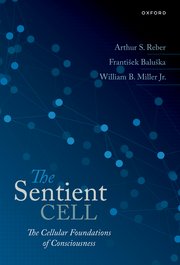
The Sentient Cell: The Cellular Foundations of Consciousness
Arthur S. Reber, František Baluška, William Miller
Oxford University Press
2024
In this book, Arthur Reber’s theory, the Cellular Basis of Consciousness (CBC), is outlined and distinguished from those models that argue that minds could be instantiated on artificial entities and those that maintain consciousness require a nervous system. The CBC framework takes a novel approach to classic topics such as the origin-of-life, philosophy of mind, the role of genes, the impact of cognition, and how biological information is processed by all species. It also calls for a rethinking of a variety of issues including the moral implications of the sentient capacities of all species, how welfare concerns need to be expanded beyond where they currently are, and critically, how all life is intertwined in a coordinated cognitive ecology. The Sentient Cell explores this revolutionary model, which updates the standard neo-Darwinian framework within which current approaches operate and examines the underlying biomolecular features that are the likely candidates for the “invention” of consciousness and outline their role in cellular life.
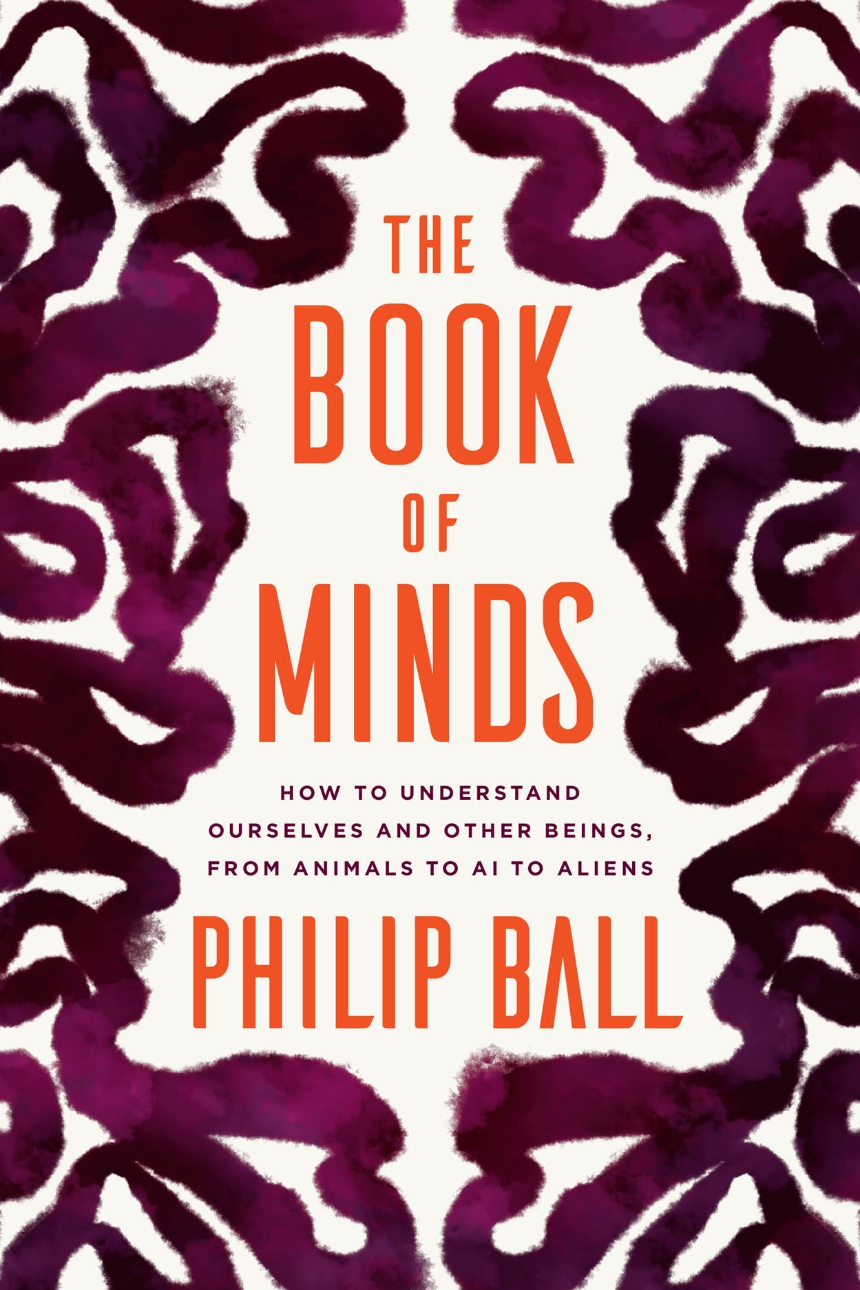
The Book of Minds: How to Understand Ourselves and Other Beings, from Animals to AI to Aliens
Philip Ball
University of Chicago Press
2022
Sciences from astronomy to biology, computer science to neuroscience, are mapping the mind in their own disciplinary territories, and Ball pulls the pieces together so that readers can appreciate the full picture–the “mindscape” or “space of possible minds.” Understanding the mindscape also reveals ways of making advances in understanding some of the most challenging questions in contemporary science. Informed by conversations with leading researchers, Ball’s survey of current views about the nature and existence of minds is more mind-expanding than readers could imagine.
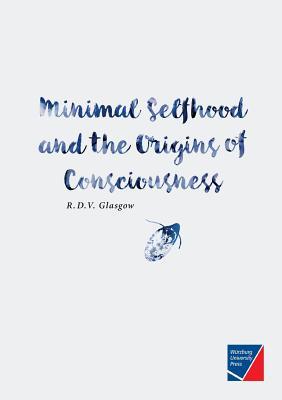
In Minimal Selfhood and the Origins of Consciousness, R.D.V. Glasgow seeks to ground the logical roots of consciousness in what he has previously called the “minimal self.” The idea is that elementary forms of consciousness are logically dependent not, as is commonly assumed, on ownership of an anatomical brain or nervous system, but on the intrinsic reflexivity that defines minimal selfhood. The aim of the book is to trace the logical pathway by which minimal selfhood gives rise to the possible appearance of consciousness. It is argued that in specific circumstances it thus makes sense to ascribe elementary consciousness to certain predatory single-celled organisms such as amoebae and dinoflagellates as well as to some of the simpler animals. Such an argument involves establishing exactly what those specific circumstances are and determining how elementary consciousness differs in nature and scope from its more complex manifestations.
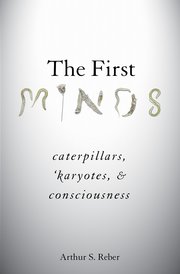
The First Minds: Caterpillars, Karyotes, and Consciousness
Arthur S. Reber
Oxford University Press
2018
First Minds: Caterpillars, Karyotes, and Consciousness presents a novel theory of the origins of mind and consciousness dubbed the Cellular Basis of Consciousness (CBC). It argues that sentience emerged with life itself. The most primitive unicellular species of bacteria are conscious, though it is a sentience of a primitive kind. They have minds, though they are tiny and limited in scope. Hints that cells might be conscious can be found in the writings of a few cell biologists but a fully developed theory has never been put forward before. The CBC approach is developed using standard models of evolutionary biology. The remarkable repertoire of single-celled species that micro- and cell-biologists have discovered is reviewed. Finally, the implications of the CBC model are discussed along with a number of related issues in evolutionary biology, philosophy of mind, the possibility of sentient plants, the ethical repercussions of universal animal sentience, and the long-range impact of adopting the CBC stance.
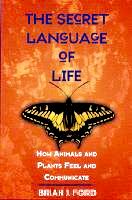
The Secret Language of Life: How Animals and Plants Feel and Communicate
Brian J. Ford
Fromm Publishing
2000
Humans are taught–wrongly–that dreams are unique to themselves. But not only do other animals dream, but they have done so long before Homo sapiens existed as a species. Do animals feel pain? The weight of scientific evidence shows they do. Mammals have languages of their own to transmit inner feelings—aggression, affection, fear—to their fellows, from dolphins’ aquatic chirping to elephants’ subsonic trumpeting. Birds show astounding cognitive ability, conducting elaborate courting rituals and displaying great passion and devotion to lifelong partners. Even protozoa carry out surprisingly complicated tasks such as navigating obstacles. The Secret Language of Life also sheds light on many intriguing wonders of biology, including the purpose of the beautiful shapes of pollen grains, how protozoa hibernate in winter, and the reason trees shed their autumn leaves.
Photo Credit: Condor in Colca Canyon, Chivay, Peru; Jean Vella/Pixabay